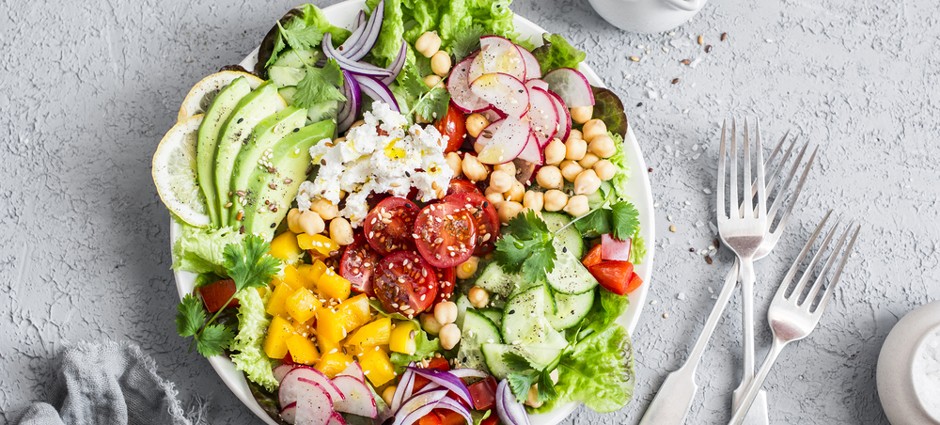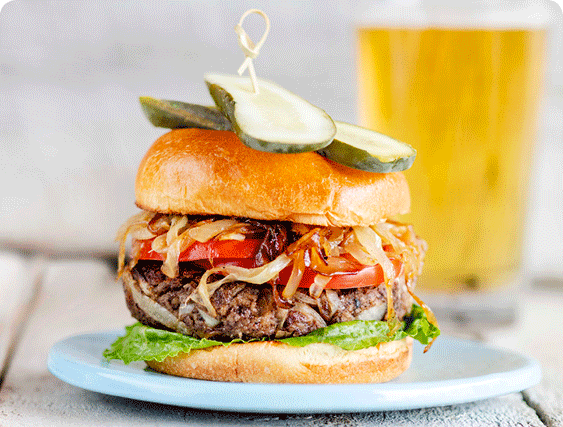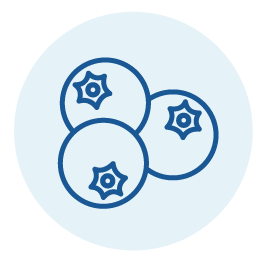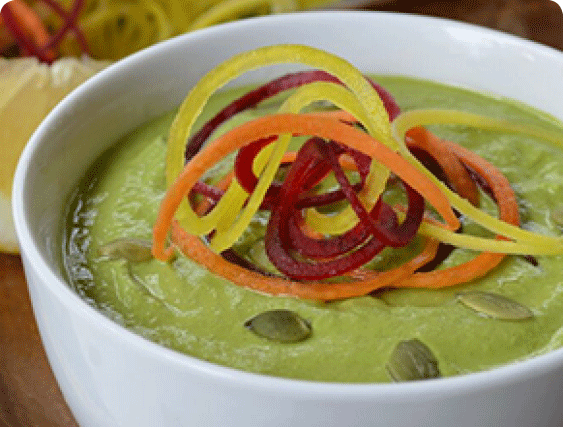A FOCUS ON WHOLE FOODS
But what does eating plant-based really mean? Essentially, it means eating whole, unprocessed foods, and, of course, plants. “Whole” foods include fruits, vegetables, whole grains, legumes/pulses (beans), and tubers(like sweet potatoes). A plant-based lifestyle puts plants at the center of the plate rather than meats or processed foods, focusing on simple ingredients—though it definitely doesn’t have to be boring! Plant-based diets span the range of vegan, vegetarian, and flexitarian (little or no meat) eating. If you choose to eat plant-based, you’ll be doing most of your grocery shopping in the produce department, rather than the aisles at the center of the store, and eating meat and other processed foods in limited quantities.
LIMITING PROCESSED FOODS
How would you define processed foods? Processed foods can include everything from bread, pasta, and cereal to chips, bacon, boxed mac ‘n cheese, and jarred pasta sauce. Basically, if your grandma wouldn’t recognize what it is, you shouldn’t eat it. Award-winning author of The Omnivore’s Dilemma, Michael Pollan, has described many processed foods as “Frankenfoods.”
See also 10 Ways to Eat More Plants.
 GOOD FOR YOUR BODY. GOOD FOR THE EARTH.
GOOD FOR YOUR BODY. GOOD FOR THE EARTH.
The benefits of plant-based eating are positive for both your health and the environment. This diet decreases your risk of heart disease—the nation’s leading cause of death—and it decreases your risk of high blood pressure, stroke, and colorectal cancer. A plant-based diet has been shown to promote weight loss and maintenance of a healthy weight, lower the risk of developing type 2 diabetes and high cholesterol, and is more cost-effective than a typical Western diet.
Additionally, eating a plant-based diet has positive effects on the environment—concentrated animal feeding operations (also known as factory farms) are some of the planet’s worst pollutants, releasing noxious methane emissions and soil and water-polluting runoff. If those factors weren’t enough, they are known as hotbeds of animal cruelty, and often use antibiotics and hormones on their animals. If you still want to include moderate amounts of meat in your diet, choose organic poultry, grass-fed beef, and seafood from the Monterrey Bay Aquarium’s Sustainable List.
The benefits of a plant-based lifestyle that sources whole foods that are local, in season, organic, and GMO-free are endless. Better for your health, your budget, and the environment, it’s a win-win. If you want to start transitioning to a plant-based lifestyle, you can start by simply swapping out some of the processed items on your plate for fresh fruits and vegetables. Be easy on yourself and don’t expect to achieve a perfect diet overnight. Start with small changes and you’ll soon reap the rewards.
Mom was right. Eat your veggies.




















































 GOOD FOR YOUR BODY. GOOD FOR THE EARTH.
GOOD FOR YOUR BODY. GOOD FOR THE EARTH.




















